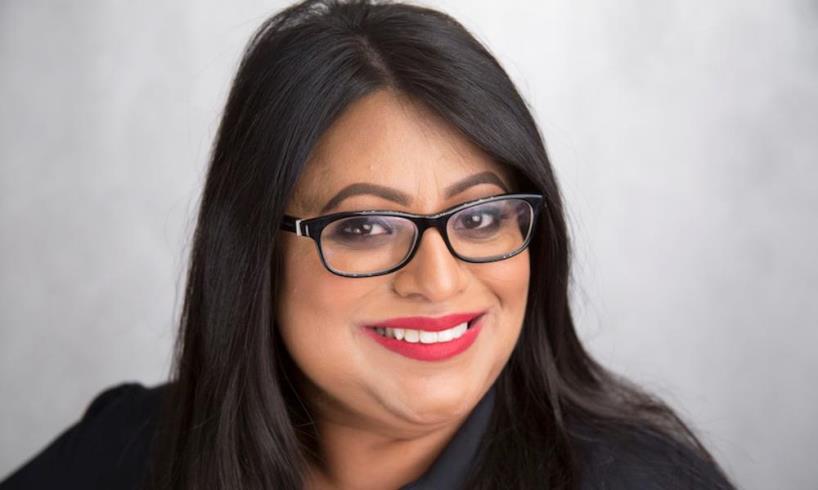
Auditing culture, values and behaviours is essential in a #MeToo world
by Farrah Qureshi, founder of the Global Diversity Practice
Within 10 days of the first tweet being posted, over 1.7m people in 85 countries had referenced #MeToo on Twitter. That number has now exploded and as a result, the hash tag has become the emblem of a global movement that is impacting businesses, countries and governments.
This is the visible tip of a very powerful iceberg. These millions of people weren’t just casual observers. They were employees, managers, working in businesses across the world.
This is why it is now so vital to audit culture, values and behaviours ahead of combining two groups of workers into one. It is well known that people factors are one of the main reasons that acquisitions do not achieve their goals. #MeToo shows that people have realised just how powerful their voice can be if they speak out. It raises the stakes for the ‘people’ factor in business success.
For many years, research has evidenced that culture has a huge impact on the success rate of mergers and acquisitions. A study by Hay Group from as early 2007 highlighted that over 90 per cent of mergers fail as a result of ‘culture shock’.
Over the years, organisations have turned to consultants like GDP in the post merger integration phase to ‘fix’ emerging cultural and leadership issues.
One investment bank needed to deal with cultural differences when they acquired another that still operated on the basis of ‘old boy networks’. This became apparent in everything: how clients were dealt with, how meetings were managed, how appraisals were conducted. A programme of assessment and training workshops was put in place. However, valuable employees and time had been lost.
A retail bank underestimated the strength of feeling among employees during a period of rapid acquisition. Employees went as far as to create underground ‘clubs’ to vent their frustration at being ‘the acquired’. Rebranding and communication succeeded in uniting the company into one, but again, might have been avoided had culture had been more closely considered ahead of the merger.
Subtle differences in values and culture can affect acquisitions between apparently very similar companies. We’ve seen this with manufacturing companies that from the outside look as though they could be joined seamlessly together, with shared processes, structures, employee grades and so forth. The reality though is that if the values are different, the teams will struggle to work together in the long term, and as a result, the business will not be able to leverage the predicted value from the acquisition as quickly.
#MeToo is by no means the only factor that is impacting organisational culture, behaviours and values.
Market analysts Trendwatching identified the evolution of ‘glass box brands’, where the brand is defined by their culture, in a 2017 report. This indicates the extent to which a brand is now impacted by external knowledge of how employees are treated by the business, which becomes apparent in a digital world. It provides evidence of how lack of inclusion and diversity can shape customer attitudes and undermine marketing efforts.
But how many businesses truly scrutinise employee attitudes closely when they consider an acquisition?
Regulatory measures are revealing discrepancies in the way different employees are treated. In the UK, businesses with more than 250 employees must publish their gender pay gap on a government website by the end of April 2018 and then maintain the data annually. This is causing much consternation in large business boardrooms. While there is currently no penalty for publishing a large gender pay gap, the media is scrutinising the published data and highlighting the lowest performers.
Will the gender pay gap have an impact on business? The answer is: very possibly yes. Organisations that rely on government contracts in particular need to start planning now to reduce any gender pay gap in the future.
And what about other pay gaps? The government’s Race Disparity Audit revealed significant inequities in the access that people of race have to career opportunities. And there are likely to be other disparities involving a much wider range of visible and invisible diversities.
Pre and post acquisition, the war for talent is not decreasing. In a multi-generational workplace, which is increasingly the norm for all organisations, businesses should anticipate that younger Gen Y and Z employees will be both very sensitive to inconsistencies in culture and leadership, and also very outspoken about them. Fearless, they will not only speak out, internally and externally, they will also vote with their feet. The result is not only the cost of losing talented employees, but also the challenges of replacing them when the reputation is affected.
Diversity and inclusion considerations are not only an issue in long-established businesses. We’ve recently been working with young, recently founded, entrepreneurial businesses in the AdTech space, that are facing exactly the same problems as larger, older organisations and sectors. It would seem that today’s generation of emerging leaders are repeating the behaviours of their forbears.
So, auditing diversity and inclusion must now be essential when an acquisition or merger is considered. It needs to be central to due diligence to ensure that there will be a good cultural fit. Identified issues need to be factored and planned for.
In an article on success factors in mergers and acquisitions, the M&A Leadership Council advises that boards need to address all of the ‘me’ factors in employee engagement through the process. This was published a few years ago. Now that we are in a #MeToo world, ensuring cultures, values and behaviours are a strong fit, inclusive, and respect individuals and diversities has never been more important.
Farrah Qureshi is founder and CEO of the Global Diversity Practice, one of the world’s leading consultancies in leveraging corporate diversity and inclusion for business success. She brings 25 years of experience in advising many of the world’s largest businesses and brands, as well as governments and not for profits, working in over 150 countries.
Website: www.globaldiversitypractice.co.uk




















